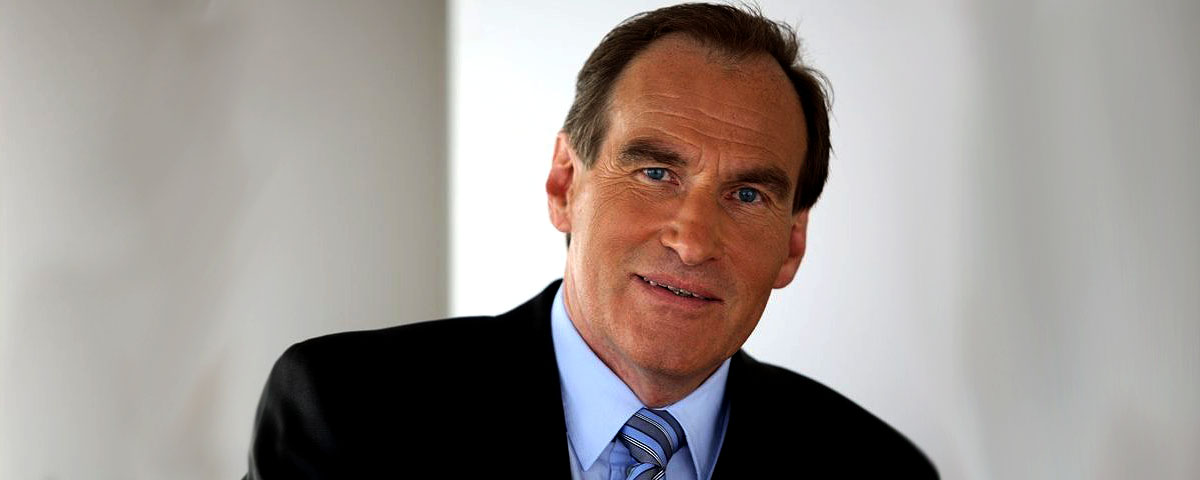Success, leadership, and strategy with DDr. Fritz Hendrich
Success, leadership, and strategy with DDr. Fritz Hendrich

Success, leadership, and strategy
1. Please, could you tell me a little bit about yourself and your career in the world of consulting and coaching?
After my studies of law and economics (parallel to my job as an editor and columnist in a newspaper) I was marketing manager in the publishing and in the travel business. Struggling in the daily business between meetings and negotiations with customers and suppliers, directorial peers and unions, responsible for 300 employees I started to envy my assigned consultants for their creative and more self-determined job. So I changed the side in the age 35 as a marketing consultant in my versant business.
Soon the question came up in me: How do good consulting concepts become real life in an organization? I located the answer in leadership and communication. After private studies in these fields I preferred to moderate in workshops managers in their strategic and organisational changes and to develop their qualities in communication, motivation, teambuilding and leading. The tasks are the same in any business and so I worked with high-tech-companies as well as with bankers and divers other industries, with small as well as with big global companies.
For some years I did this in a network of consultant and trainers, but with our success in founding affiliates in the new open Eastern Europe I found myself again in the manager’s role and so I better liked to work for myself as a consultant, coach and trainer in a rather personal connection to the client.
To a certain degree big consultant organizations for me are kind of false labelling: Using well known brand marks (of retired or dead founders) often the guys, who do the work now, do lack of competence or at least experience. Consulting and coaching in my perception should be a matter of personal contact and trust. Helpful in gaining trust and authenticity of managers for me was my former career as a manager, so that my clients appreciated the rather practical sight and way instead of high sophisticated theoretic detours of consultants and coaches who never experienced a company from inside.
A useful impulse to successful business are my five books on management and leadership, which were published in six languages (a. o. Arabic and Korean). Great pleasure to me is also teaching strategy and leadership to students and postgraduates at some European universities and so pointing out the critical tasks and issues soon enough.
2. Can you share an experience or specific moment that made you lose/gain confidence regarding consulting business leaders, managers, and employees?
Losing confidence at the utmost I do when managers think they could delegate their job of motivating their employees by sending them in a 3-day workshop and then it is done. Therefore I only accept cooperation with clients on a rather long-term basis as a conjoint way of development top down.
On this way I really gained confidence in the effect of consulting and training, when I did leadership-training the first time over some years with a group of master craftsmen in a big elevator-company. After some years the one and the other of their younger employees came into the training as now they had become master themselves. They were so curious, what could go on in these trainings, as their bosses always had come back with a changed behaviour and did change quite some parts of the organization’s culture. Hence developing leadership, communication, strategy, culture and organization never should be seen as a project but as a process with trusted partners.
3. In what areas do you think nowadays schools/universities around the world could improve when teaching students in terms of leadership and teamwork? What advice would you give them?
They could and should improve by taking the so called “soft-skills” more serious and important and stop to pay only lip-service to these tasks. Beside the “hard-skills” connected with finance and efficiency, which dominate the curricula and foster the greed without moral in sick organizations with sickening competition and mobbing, they should become aware, that these personal skills are not only “nice to have”, but crucial qualities in an ethical economy.
4. What guidelines would you give teachers and coaches to help building up student´s organizational- and time management skills?
These skills should become oriented on a personal work-life-balance instead of being a fitness-training for the pursuit of greed and career.
5. Many people are struggling with overwhelming demands and pressure at school and work every day. Could you share with pupils, students, and young professionals one or two strategies how to overcome challenges faster?
Maybe first not to look how to overcome challenges faster, but first look if it is a challenge worth to overcome with your personal qualities and talents and perspectives for a fulfilled life.
So first check honestly your personal abilities and talents. For this you could imagine your last point of no return, which someday will be your funeral: What would you like to hear (if you could) from speakers like your partners, kids, friends at this point? This should become your priorities number one. By the way I never did hear of a successful manager as his last words: “Oh, I should have spent more time in the office…”
6. What would you say are success factors when it comes to effective communication between teachers/superior and students/employees?
To speak at the same level of partnership and not top-down or vice versa.
Not to speak out accusations or orders – but personal perceptions, feelings, wishes. (More about this is to be found under the key-word “non-violent communication” or in the writings of P. Watzlawick and V. Satir.)
7. How do you define success?
To love what you do and what the outcome is of your acting.
8. What personal life principles made you become successful?
To do what I think is best to transfer my talents and abilities into activities which leave a mark. (Without looking out for the mainstream or waiting for allowance and permits.)
9. What advice would you give students and young adults in order for them to achieve what they want?
Become aware if you really want it by heart and by your critical mind – or if you just follow a trend, a fashion, a promoted life-style.
Bücher Deutsch:
Die vier Energien der Führung - Menschenführung mit der Kraft der Elemente
Das Leader Buch - Ratschläge und Seitenhiebe für Manager
Horse Sense - Oder wie Alexander der Große zuerst ein Pferd und dann ein Weltreich eroberte
Interview conducted by Nicholas Sebastian Chan
A-Grade Interviews
on www.a-grade.at
